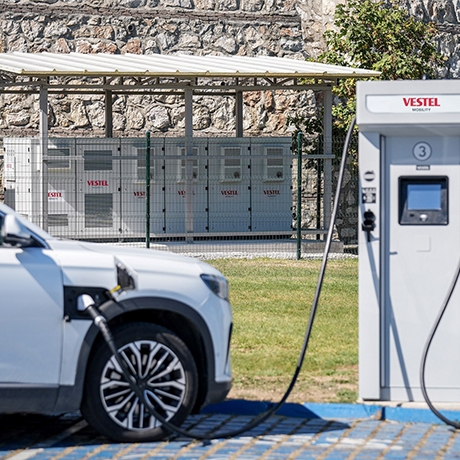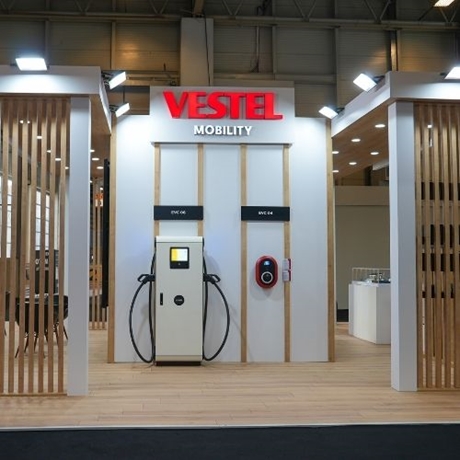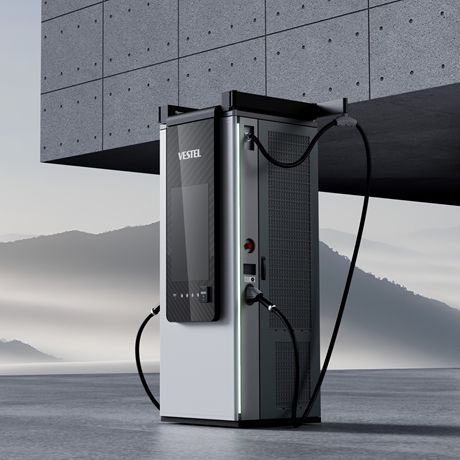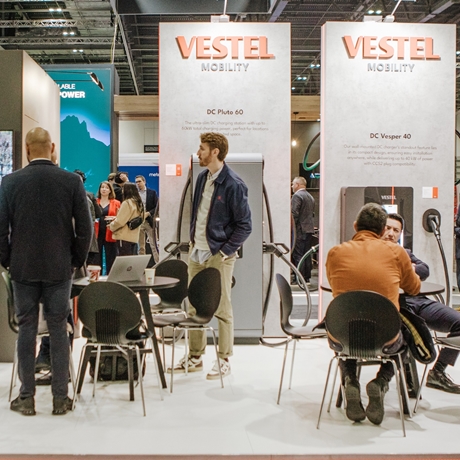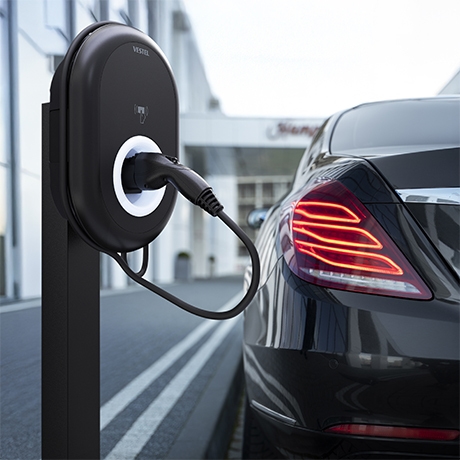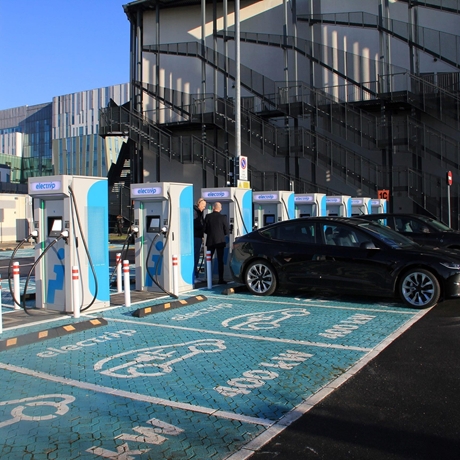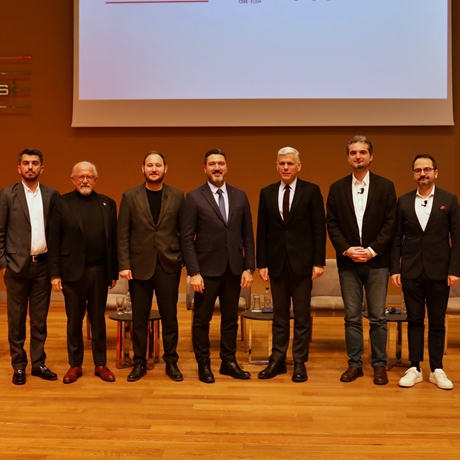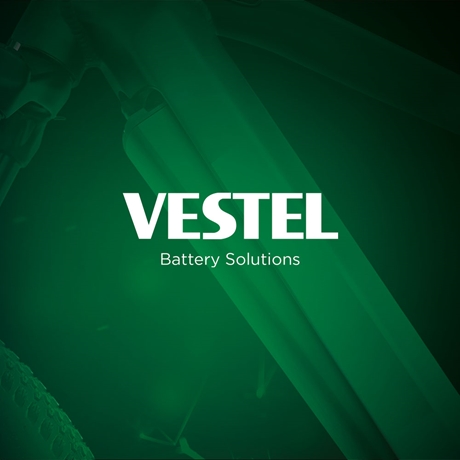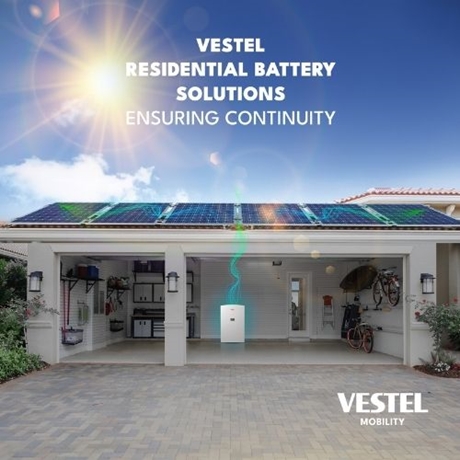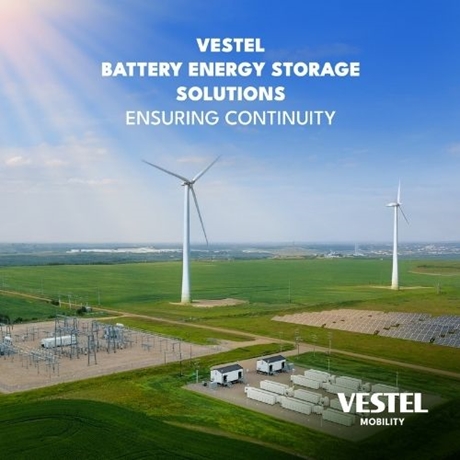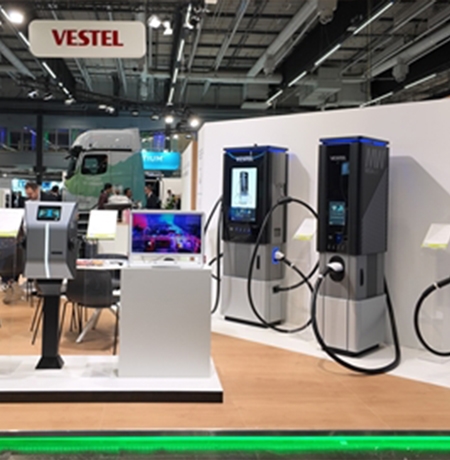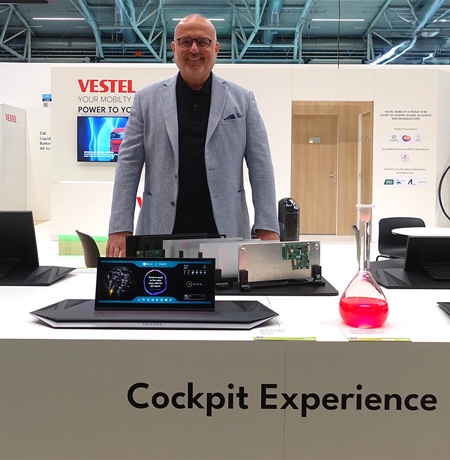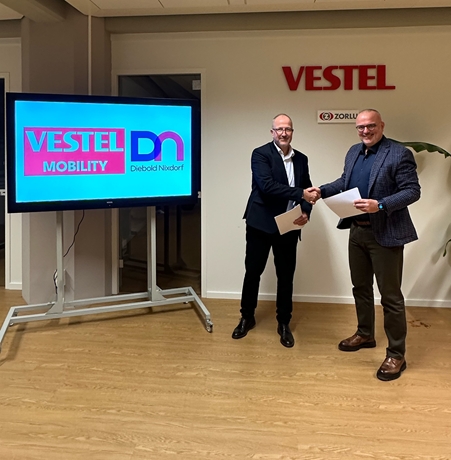
Vestel has made a significant mark in Turkey by launching its first domestic battery energy storage system developed for the mobility market. This system, installed at the SARAR Outlet facility in Bozüyük, Bilecik, is one of the few examples of its kind in the world.
The hybrid system, with a capacity of 300kWh and power of 200kW, can be charged through solar panels, and in situations where the panels are not usable, it charges from the grid. The system allows for the simultaneous charging of up to eight electric vehicles (EVs), with a single vehicle’s battery being fully charged in an average of 20 minutes.
As it intensifies its efforts in the rapidly growing mobility market, Vestel has now activated Turkey's first domestic battery energy storage system. This system, designed for commercial and industrial operations, provides continuous energy to four EVCs (Electric Vehicle Chargers) with a total capacity of 400kW at the SARAR Outlet in Bozüyük.
This system, developed by Vestel engineers, is one of the few examples globally where EVCs are supported by a battery energy storage system. The system has a capacity of 300kWh and power of 200kW. Using an energy management system (EMS) developed by Vestel engineers, the system can be remotely controlled and provides the same performance to the 400kW EVCs at the facility. The battery energy storage system integrates four key components of the mobility ecosystem—electric vehicles, DC fast chargers, batteries, and solar power plants.

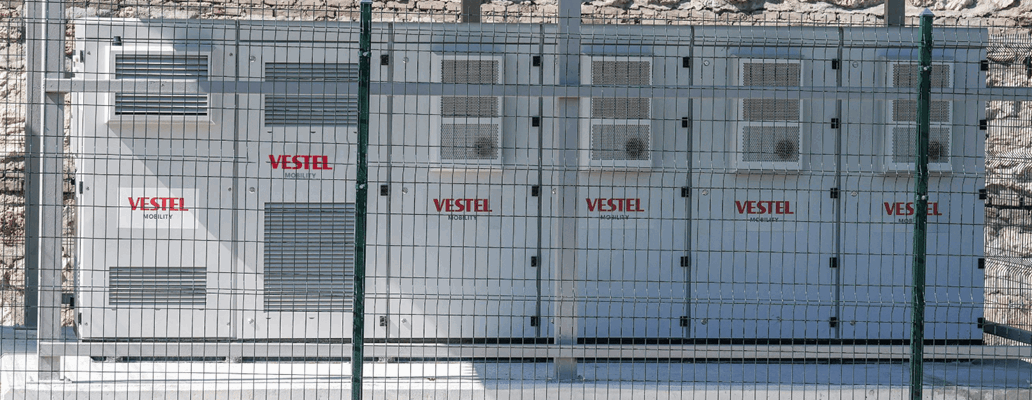
Utilizing Both Solar and Grid Power
The battery energy storage system operates as a hybrid, charging through solar panels. When the panels are unavailable, the system can charge from the grid.
In this EVC-Battery-Solar-Grid integrated system, energy stored through solar panels is used to support the grid and enable the use of electric vehicle charging stations whenever necessary.
The fully domestic "energy management system" enables real-time monitoring of all technical data, allowing for flexible adjustments of charging and discharging scenarios, as well as the development of scenario modes based on user needs.
Power from the grid is minimized to just 5%, while the system supports EVCs using 95% battery power. The battery can service four 400kW EVC units.
Increasing Demand for Renewable Energy Storage
The global mobility market is expected to reach approximately $580 billion by 2030 in the areas where Vestel operates—electric vehicle components, charging stations, and energy battery storage solutions.
Storage solutions for renewable energy sources, such as solar and wind, are rapidly becoming more common worldwide. In many European countries, numerous users store energy through solar panels during the day and use it in the evening at home, significantly reducing energy costs.
With this perspective, Vestel is developing solutions to ensure more efficient use of global resources. Vestel Mobility currently manufactures energy storage systems for residential, commercial, and industrial sectors, as well as for renewable solar and wind energy plants and the telecommunications industry. Vestel was among the first companies to offer 75 kWh and 300 kWh energy storage products to the market for both residential and communal use.
As intermittent renewable energy sources like solar and wind are not always generating power, these sources need to be supported by energy storage technologies. In response to this need, Vestel designs and manufactures container-sized energy battery storage units with capacities ranging from 2 to 5 MWh.



